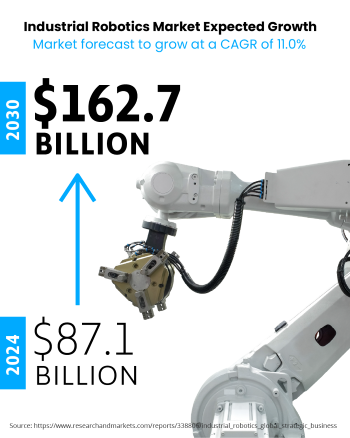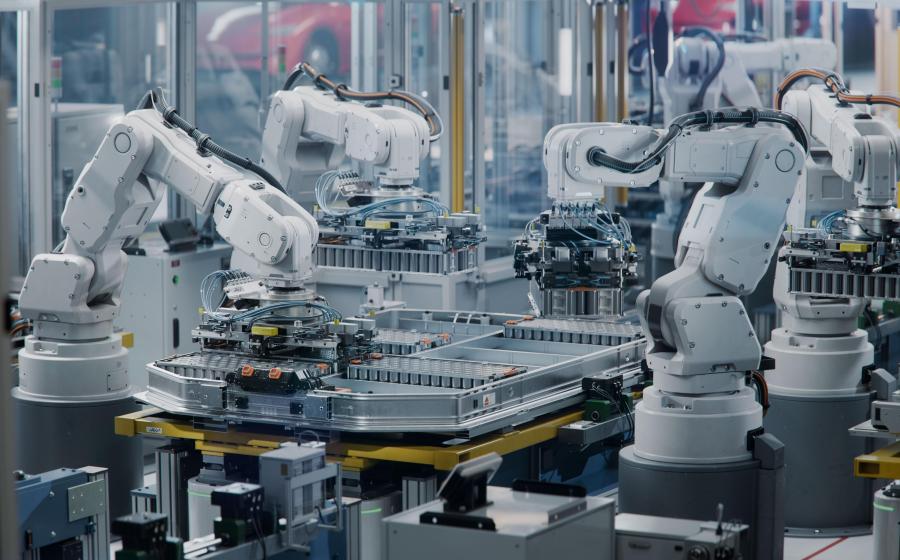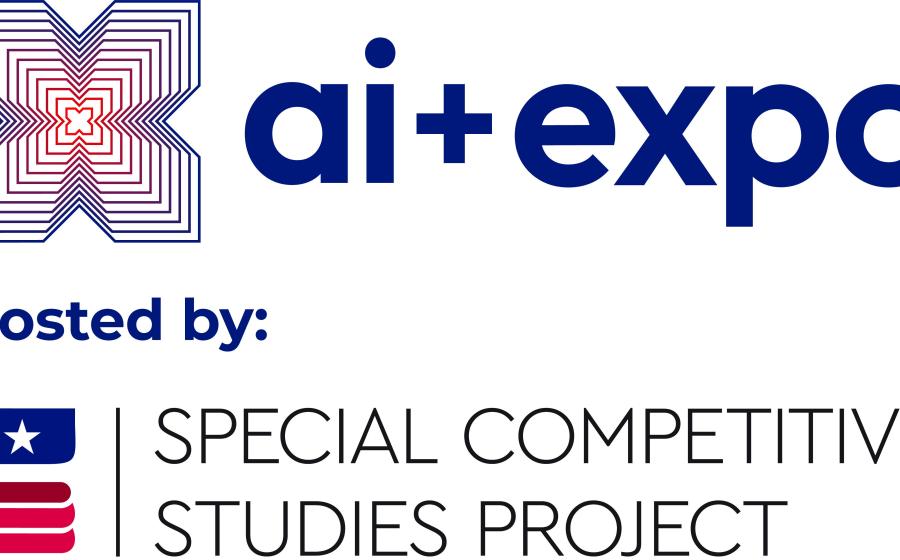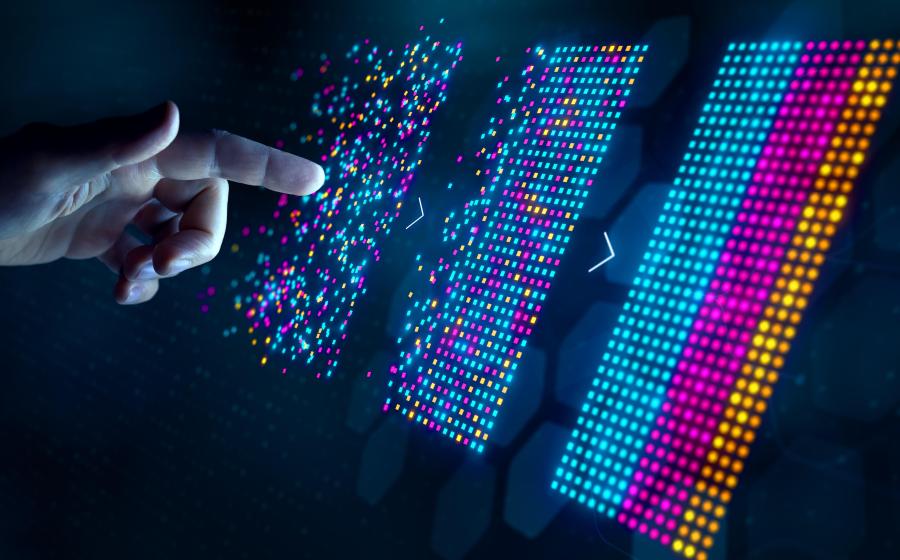(Dhaval Jadav, CEO of alliantgroup) - Robotics and hard‑tech transformation are reshaping the business landscape at an extraordinary pace. What was once confined to research labs and science fiction is now redefining entire industries — from intelligent machines on the factory floor to cyber‑physical systems driving smarter decision‑making in the boardroom. The global industrial robotics market was valued at US $87.1 billion in 2024 and is projected to reach US $162.7 billion by 2030 — representing an 11% CAGR. This clear signal shows the wave of transformation is not just here—it’s accelerating.
- Robotics and hard‑tech transformation are reshaping the business landscape at an extraordinary pace. What was once confined to research labs and science fiction is now redefining entire industries — from intelligent machines on the factory floor to cyber‑physical systems driving smarter decision‑making in the boardroom. The global industrial robotics market was valued at US $87.1 billion in 2024 and is projected to reach US $162.7 billion by 2030 — representing an 11% CAGR. This clear signal shows the wave of transformation is not just here—it’s accelerating.
And yet, amid the excitement, the conversation is often split into extremes. On one side: aggressive adoption of robotics, automation and hard‑tech tools, sometimes without a clear strategy. On the other: skepticism rooted in fear — fear of job loss, ethical implications, or losing control. Neither extreme is helpful, and the truth is far more nuanced.
At alliantgroup, we’re embracing this wave — but with purpose. We see robotics, AI and automation not as a replacement for people, but as a force multiplier. A way to extend human potential, eliminate friction, and reimagine how work gets done. When introduced with intention, these technologies become enablers — not just of efficiency, but of impact.
Don’t Deploy Tech for Tech’s Sake
One of the biggest mistakes I see businesses make is leading with the technology instead of the outcome. It’s a trap many fall into — chasing innovation without alignment, and at alliantgroup we’ve learned from our mistakes here too. It’s no surprise then that nearly 70% of digital transformation efforts fall short. often because companies lead with capability instead of clarity. The result? Tools that don’t fit, teams that don’t buy in, and outcomes that never materialize.
The companies that win with automation don’t start with “What can we automate?” They start with “What’s holding us back?” Then they solve from there. Sometimes that answer involves automation from robotics, smart sensors, or AI-powered workflows. Sometimes it involves people, process, or design. Often, it’s all of the above.
Why Human Expertise Still Matters — and How alliantgroup Puts It Into Practice
 No matter how advanced the systems become, human judgment remains irreplaceable. Business isn’t a formula — it’s a dynamic mix of tradeoffs, nuance, and lived experience. Real success still depends on knowing when to question the model, when to course-correct, and when to trust instinct.
No matter how advanced the systems become, human judgment remains irreplaceable. Business isn’t a formula — it’s a dynamic mix of tradeoffs, nuance, and lived experience. Real success still depends on knowing when to question the model, when to course-correct, and when to trust instinct.
That’s especially true in industries where regulatory complexity, operational risk, and legacy systems collide. Robotics can accelerate action — but only people can interpret meaning, balance priorities, and act with foresight.
At alliantgroup, we’ve seen this firsthand. Our teams include engineers, operators, former executives — people who have built companies, led through crises, and understand what execution really looks like. When they work alongside clients to implement AI, robotics or hard-tech solutions, the results are smarter, not just faster — and they last.
Technology amplifies whatever foundation it’s built on. If your systems are broken, robotics won’t fix them. But if you have the right strategy and the right people, it becomes a force multiplier — not a replacement.
How to Get Robotics and Hard-Tech Transformation Right
We’ve seen how empowering employees through integrating advanced solutions leads to stronger execution — not just faster workflows, but better business outcomes. And when it’s done right, the results speak for themselves — organizations that scale automation effectively report productivity gains of up to 50%. But that only happens when technology serves people, not sidelines them.
1. Start with real-world friction.
Start by identifying friction — not just in operations, but in decision-making. Where are your teams spending too much time? Where do errors creep in? Where are you reacting instead of anticipating? Let the answers guide your solution.
2. Elevate your workforce.
Robotics should take on the Three D’s — the dirty, dangerous, and dull tasks — so your people don’t have to. By offloading the repetitive, high-risk, and mind-numbing work, you free up your teams to focus on what truly drives value: strategic thinking, relationship building, and innovation. That’s where human potential shines.
3. Execute over evangelize.
It’s tempting to talk about automation in grand terms — “digital transformation,” “Industry 4.0,” “AI-powered everything.” But transformation doesn’t happen through headlines. It happens through disciplined, consistent execution. Start with small wins. Prove value. Scale from there.
Building a Future Where People and Machines Thrive
The future belongs to companies that can blend speed with substance. That means embracing robotics, AI and automation, — not as a trend, but as a strategic capability. And it means holding onto the fundamentals: clarity, accountability, adaptability, and expertise.
I’m fortunate to work with teams that are building that kind of future every day — not just implementing tools, but rethinking how work gets done. The most successful among them aren’t afraid of automation. They’re energized by it. But they’re also grounded. They know that no matter how advanced the systems become, their edge will still come from people — people who know how to ask the right questions, connect the dots, and lead with purpose.
That’s the mindset we champion at alliantgroup and the one we believe will define the next era of smart, resilient business leadership.
Dhaval Jadav is the co-founder and CEO of alliant. Under Jadav’s leadership, the firm has empowered 24,000+ companies in 70+ industries with actionable business solutions. Prior to founding alliant, Jadav developed his expertise in high-tech business deals as a member of a Mergers & Acquisitions/Private Equity/Strategic Buyer Services Group in San Francisco and honed his business operations acumen with Deloitte & Touche in its Washington National Office. Linkedin • Facebook • Instagram • YouTube
 - The second AI+ Expo took place in Washington, D.C., from June 2-4, 2025, and served as a stark reminder of the lightning pace of AI development, according to Ylli Bajraktari, president of the Special Competitive Studies Project (SCSP).
- The second AI+ Expo took place in Washington, D.C., from June 2-4, 2025, and served as a stark reminder of the lightning pace of AI development, according to Ylli Bajraktari, president of the Special Competitive Studies Project (SCSP).


 - Robotics and hard‑tech transformation are reshaping the business landscape at an extraordinary pace. What was once confined to research labs and science fiction is now redefining entire industries — from intelligent machines on the factory floor to cyber‑physical systems driving smarter decision‑making in the boardroom. The global industrial robotics market was valued at US $87.1 billion in 2024 and is projected to reach
- Robotics and hard‑tech transformation are reshaping the business landscape at an extraordinary pace. What was once confined to research labs and science fiction is now redefining entire industries — from intelligent machines on the factory floor to cyber‑physical systems driving smarter decision‑making in the boardroom. The global industrial robotics market was valued at US $87.1 billion in 2024 and is projected to reach  No matter how advanced the systems become, human judgment remains irreplaceable. Business isn’t a formula — it’s a dynamic mix of tradeoffs, nuance, and lived experience. Real success still depends on knowing when to question the model, when to course-correct, and when to trust instinct.
No matter how advanced the systems become, human judgment remains irreplaceable. Business isn’t a formula — it’s a dynamic mix of tradeoffs, nuance, and lived experience. Real success still depends on knowing when to question the model, when to course-correct, and when to trust instinct.

 - During Vice President Vance’s visit to India in early 2025, he emphasized the deep connection and shared vision for the future between the two nations, highlighting the need to build together as global partners based on fairness and shared national interests, said Ylli Bajraktari, President of the Special Competitive Studies Project (SCSP), a nonprofit and nonpartisan initiative with a goal of making recommendations to strengthen America's long-term competitiveness in AI.
- During Vice President Vance’s visit to India in early 2025, he emphasized the deep connection and shared vision for the future between the two nations, highlighting the need to build together as global partners based on fairness and shared national interests, said Ylli Bajraktari, President of the Special Competitive Studies Project (SCSP), a nonprofit and nonpartisan initiative with a goal of making recommendations to strengthen America's long-term competitiveness in AI.
 - The Intellectual Property Owners Education Foundation (IPOEF) launched IP Buddy (
- The Intellectual Property Owners Education Foundation (IPOEF) launched IP Buddy (
 - The AI+ Expo, taking place on June 2-4 in Washington, D.C., seeks to spark discussions of ideas and initiatives related to the intersection of AI, emerging technology, and national security.
- The AI+ Expo, taking place on June 2-4 in Washington, D.C., seeks to spark discussions of ideas and initiatives related to the intersection of AI, emerging technology, and national security.
 - The United States was once the global leader in science and technology, but now other countries, notably China, are catching up, in part by leveraging data through artificial intelligence, according to experts at the Special Competitive Studies Project (SCSP), a nonprofit and nonpartisan initiative with a goal of making recommendations to strengthen America's long-term competitiveness in AI.
- The United States was once the global leader in science and technology, but now other countries, notably China, are catching up, in part by leveraging data through artificial intelligence, according to experts at the Special Competitive Studies Project (SCSP), a nonprofit and nonpartisan initiative with a goal of making recommendations to strengthen America's long-term competitiveness in AI.
 - The development of technical standards is an often overlooked, but is an essential element in global technology leadership. The United States must be proactive to develop these standards, in addition to technology research and innovation, to stay ahead of our top competitor, China, according to Ananmay Agarwal, an expert at the Special Competitive Studies Project (SCSP), a nonprofit and nonpartisan initiative with a goal of making recommendations to strengthen America's long-term competitiveness in AI.
- The development of technical standards is an often overlooked, but is an essential element in global technology leadership. The United States must be proactive to develop these standards, in addition to technology research and innovation, to stay ahead of our top competitor, China, according to Ananmay Agarwal, an expert at the Special Competitive Studies Project (SCSP), a nonprofit and nonpartisan initiative with a goal of making recommendations to strengthen America's long-term competitiveness in AI.
 - Rural Americans often enjoy unique lifestyle benefits, but many still face significant challenges in accessing reliable internet connectivity. With the conclusion of the Affordable Connectivity Program in June, which had offered government-subsidized discounts to eligible households, those in remote areas are now seeking alternative solutions to stay connected.
- Rural Americans often enjoy unique lifestyle benefits, but many still face significant challenges in accessing reliable internet connectivity. With the conclusion of the Affordable Connectivity Program in June, which had offered government-subsidized discounts to eligible households, those in remote areas are now seeking alternative solutions to stay connected.
 - Part of the mission of intelligence communities (ICs) is to alert leaders to the likelihood and implications of events such as imminent acts of military aggression by adversaries, sudden political transitions, or economic crises. Policy makers need as much warning as possible in order to prepare next moves in response to potential disruptions or threats on a global scale.
- Part of the mission of intelligence communities (ICs) is to alert leaders to the likelihood and implications of events such as imminent acts of military aggression by adversaries, sudden political transitions, or economic crises. Policy makers need as much warning as possible in order to prepare next moves in response to potential disruptions or threats on a global scale.
 - Scams targeting people age 60 and older resulted in over $3.4 billion in losses in 2023, according to the
- Scams targeting people age 60 and older resulted in over $3.4 billion in losses in 2023, according to the 


